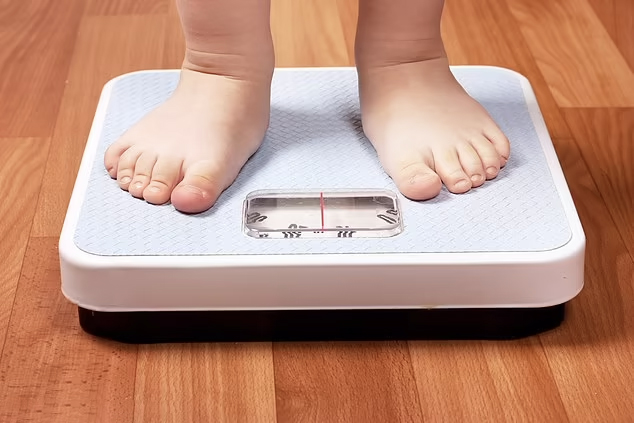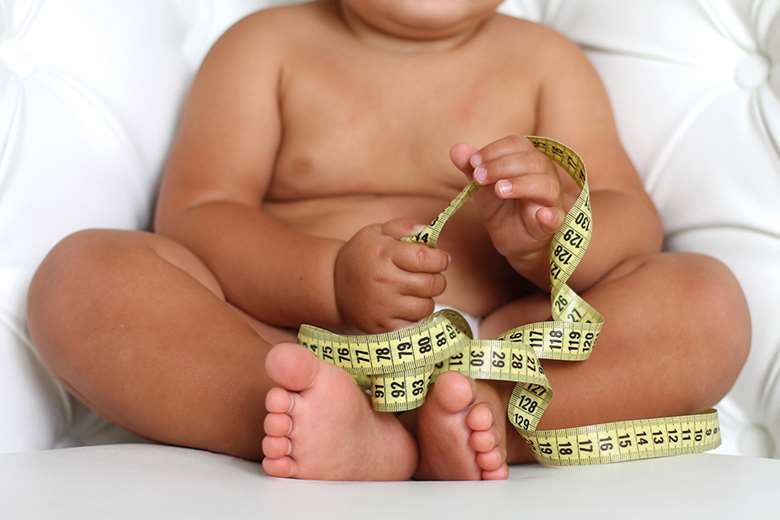
Watch out: Childhood obesity is a national issue!
Ramadan is a time when your child’s regular lifestyle undergoes a major change, including meal times, sleep patterns and of course, the diet! But the issue of obesity in the UAE goes beyind the fasting season…
In the UAE, childhood obesity is a growing concern given that it has one of the highest overall rates of obesity in the world, which also accounts for it being one of the highest in patients suffering from diabetes.
Childhood obesity has been on the rise in the UAE, not surprisingly given the sedantary lifestyle, with recent studies highlighting the alarming rates of being overweight among children and adolescents.
Recent research reveals that the prevalence of childhood obesity in the UAE is estimated to be around 13%. It is a matter of concern given that childhood obesity is also associated with various health risks which can have long-term consequences on both physical and mental well-being if ignored.
How do you define Obesity?
According to our top paediatrician in Dubai, ‘Obesity’ in children is defined as a disorder where children having excess body fat that negatively impacts their health. In the UAE, several factors contribute to the increasing rates of childhood obesity, including changes in dietary habits, sedentary lifestyles, and socio-cultural influences.
Our leading Indian paediatrician in Dubai also suggests that the traditional diet, which was once rich in fruits, vegetables, and lean proteins, has been replaced by a more Westernized diet high in processed foods, sugar, and saturated fats. Additionally, children in the UAE are engaging in less physical activity due to the prevalence of screen time, Netflixing and lack of outdoor play or even a simple 30-minute walk.

How does Obesity impact your child?

If your child is obese, there’s a higher risk of developing chronic conditions such as Type 2 diabetes, hypertension, heart disease, and certain types of cancer.
Your child may also experience psychological issues such as low self-esteem, depression, and anxiety. Addressing all of this requires a multi-faceted approach that involves stakeholders at every level: you as a parent, your family members, and your community.
Your best bet is to talk to any of our top-rated paediatricians at HealthHub Clinics right away!
Like including nutritious fruits and veggies into their meals to help their bodies grow, or whole grains and lean protein that pack in enough energy to stay active.
When you’re cooking or grocery shopping, show them different examples of these key food groups.
How to prevent Obesity:
Education:
One of the key strategies to combat childhood obesity is educating and promoting healthy eating habits and physical activity among children and their families to dispel any myths or misunderstandings of dietary patterns.
Educating parents and caregivers about the importance of a balanced diet and regular exercise is crucial in preventing and managing childhood obesity.
But it’s also a collective effort – even schools and educational institutes can play a vital role in creating a supportive environment for healthy living by offering nutritious meals, implementing physical education programs, and promoting active play among students.

Medical treatment:

In addition to lifestyle interventions, healthcare providers such as our doctors at HealthHub Clinics can play a critical role in identifying and managing childhood obesity.
One of the key steps is to ensure regular check-ups and screenings to track a child’s growth and development, and suggest customised lifestyle changes and treatment for obesity when needed. In severe cases of obesity, medical treatment and intervention may be necessary to help children achieve and maintain a healthy weight.
Cultural & economical impact:
Additionally, research studies have also highlighted the impact of cultural and socioeconomic factors on childhood obesity in the UAE.
Studies by Al-Haddad (2019), have shown that factors such as parental education, household income, and access to healthy food options (also based on food allergies and deficiencies according to our paediatric allergist in Dubai), has a direct impact on a child’s risk of becoming overweight or obese.
Families with lower incomes may face obstacles such as not being able to afford nutritious foods or engaging in physical activities, which can contribute to the development of obesity in their children.

Community impact:

Even the economical ecosystem of the UAE, brought about by advancement and development and a reliance on automobiles, has led to a decrease in opportunities for physical activity. Limited access to safe and pedestrian-friendly spaces for walking or cycling, coupled with the convenience of motorized transport, has contributed to a more sedentary lifestyle among children and adolescents.
Strategies to promote active transportation, such as walking or cycling to school (of course within hosiptable climactic conditions), can help address this issue and encourage regular physical activity among children.
As suggested by our reliable paediatrician in Dubai, one of the challenges in addressing childhood obesity is the lack of standardized screening and monitoring tools in the UAE. Regular monitoring of children’s growth parameters, such as body mass index (BMI) and waist circumference is essential for early detection and intervention. There is a real need for standardized guidelines for screening and managing childhood obesity across healthcare institutions in the UAE.
Integrating obesity prevention and management into the healthcare system is crucial for addressing the complex nature of childhood obesity. Multidisciplinary approaches that involve paediatricians, endocrinologists, dieticians, psychologists, and physical therapists can provide comprehensive care and support for children and families affected by obesity.
Customised interventions that focus on behavior modifications, nutrition education, and promotion of physical activity with the help of community clubs and physical education centers can help children develop healthy habits and sustain long-term weight management at a young age.

Furthermore, collaboration between healthcare providers, schools, government agencies, and non-governmental organizations is essential for implementing population-wide interventions to tackle childhood obesity.
School-based initiatives, such as nutrition education programs, healthy school meals can contribute to creating a culture of health within educational settings. Even governmental policies that regulate food marketing to children, promote food labeling, and restrict the availability of unhealthy foods in schools can also have a significant impact on children’s dietary intake and overall health.
By promoting healthy eating habits, encouraging physical activity, and providing adequate support and resources, we can work towards improving the health and well-being of children and adolescents in the UAE. As our best paediatrician in Dubai would suggest, it is imperative that we address childhood obesity effectively to ensure a healthier future for our next generation.
Call us to know more about our consultation & dietary advise, including
complimentary BMI and blood pressure.
Visit https://www.healthhubalfuttaim.com to know more about the following packages:
Diabetes package @ AED 199
Thyroid package @ AED 99
Vitamin D package @ AED 99
You can read more about weight management in our blog on watching your weight during Ramadan
Book an appointment right away with a reliable paediatrician in Dubai or talk to our team of paediatricians at HealthHub Clinics today on 800 2344.









